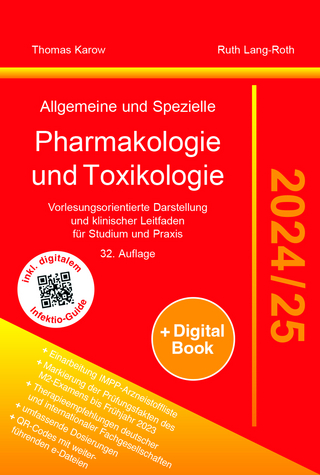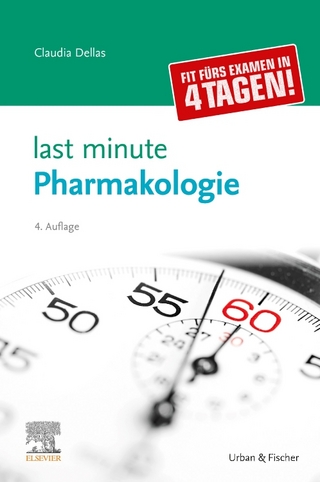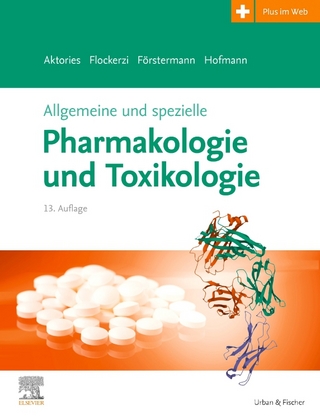
Persistent Organic Pollutants in Aquatic Systems
Springer International Publishing (Verlag)
978-3-031-53340-2 (ISBN)
This book addressed an in-depth comprehension of the classifications and characterizations of POPs, which have become global issues due to bioaccumulation, persistency, and toxicity. It represents the milestones of the development of pesticide application, industry, and management. Banned SC-POPs have special investigations. It discusses air-sea exchange, ocean currents, phase distribution, speciation, adsorption, desorption, and degradation as the key processes that control POP's fate. The book explores several aspects of POP chemistry that have a direct influence on their biochemical and toxicological consequences. The book illustrates the dynamic equilibriums influencing the proportion of a POP's gaseous, liquid, and solid phases. The book discussed POP migration by referring to the grasshopper effect. It also explores the impacts of climate change on emissions and the fate of POPs through a global-scale multimedia fate model. Additionally, it displays the impact of potential global change scenarios on POP bioaccumulation patterns. The book is directed at giving a deep discussion of the method's QA/QC process for POP determination and has verified the accuracy and precision of the procedures. As a distinctive point, it discusses many aspects concerning the toxicity of POPs. It reports mechanisms describing the toxicity of POPs on immune systems, carcinogenesis, endocrine, neural, and reproductive systems. The book keeps an eye on a model describing the global distribution and toxicity of PAHs. Among the exclusive points in the book is the evaluation of the recent ecological status in Egypt relative to POPs through a time-scale overview and recent case studies. It provides thematic literature related to DDC research in Africa through the WoS and Scopus databases from 1949 to 2021. The book emphasizes models for predicting the annual contribution rate of POPs as a way to raise public awareness about POPs. The greatest challenge for the book is how to motivate the audience to be aware of these hazardous materials in marine ecosystems. Moreover, this book will be of great interest to academics, professionals, practitioners, post-graduate students, and undergraduates because it gives a clear overview of POPs in the marine environment. It also provides decision-makers with a realistic perspective of the environmental file, allowing them to address environmental issues and directing stockholders to safer locations for environmental activity. From a future perspective, the regulation of pervasive POPs, with special reference to recently evaluated harmful substances (PFASs), has faced significant challenges in the wake of pressure from regulators.
Prof. Dr. Tarek O. Said is a Professor of Marine Chemistry and Dean of National Institute of Oceanography and Fisheries, Mediterranean and Northern Lakes Branch (NIOF), Alexandria-Egypt. He did his B Sc. in Chemistry with Excellent degree (1988) from Chemistry Department, Faculty of Science, Mansoura University, Egypt, MSc. in Chemistry (July 1992), Mansoura University. Thesis entitled, [Study on oil pollution in the northern part of the Gulf of Suez], and PhD. in Analytical chemistry (January 1997) from Department of Chemistry Faculty of Science, Mansoura University, Egypt. Research Interest: Pesticides, Polycyclic aromatic hydrocarbons, Polychlorinated biphenyls and heavy metals in the Mediterranean and Red Seas (Egypt) were investigated and correlated with pollution and environmental aspects. Organo-tin and organo-lead in the Red Sea and the Mediterranean Sea were investigated and discussed through M.Sc and Ph.D theses. Different Oil dispersants were tested through bioassay studies for calculating their efficiency. Bio-remedial treatment of organic pollutants using bacteria. Speciation of heavy metals in different environmental samples. Analysis of environmental samples for Hydrocarbons. Analysis of environmental samples for pesticides and PCBs. Speciation of heavy metal in marine sediment, dust, soil and biota samples. Using GC/FID/ECD for analysis of organic pollutants. Using Atomic Absorption Spectrometry (Varian) for heavy metal analysis. Using UV/V Spectrophotometer, Varian-10 Plus for analysis of inorganic pollutants. Supervisor of the central Lab at NIOF, Alexandria-Egypt. Teaching of different Chemistry courses for undergraduate and postgraduate students for the Faculties of Science and Engineering of different universities in Egypt and Saudi Arabia. Supervised of different Ph D and M Sc Theses. Sharing in Organizing of different Workshops, Conferences and International Meetings belonging to NIOF, Egypt and KKU, KSA.
Researcher Score 26.07, H-Index 24, i10-index 47 and citations 1612
Prof. Dr. Gehan El Zokm is a professor at the Marine Chemistry Department and leader of the halogen, sulfide modeling, and surfactant groups at the National Institute of Oceanography and Fisheries, Mediterranean Sea Branch in Egypt. She earned her B.Sc., M.Sc., and Ph.D. in the Chemistry Department at the Faculty of Science of Alexandria University in Alexandria, both of which concerned heavy metal chemistry (focusing on preconcentration and fractionation tools). She is a professor of environmental chemistry in the marine chemistry lab at the Marine Environment Division. Her research interests are in analytical and instrumental chemistry. Statistical analyses were the most prominent features of her research, which was conducted using the most recent software packages. Her papers discuss the topics of eutrophication, pollution as well as the responses of marine biota to these two phenomena. Her study focuses on the mobility and fluxes of various parameters within marine environment components. Extraction of natural products with many applications and nutritional studies are her recent projects. Her research is also focused on water treatment and monitoring of pollutants (heavy metals- phenol- hydrocarbons and pesticides). She has 54 research papers and three books with an H-index of 17. Factorial design is applied for water treatment experiments. She reviews a lot of papers for many important publishers (Elsevier, Springer, and Taylor & Francis). She supervised and headed several projects and postgraduate students, participated in many conferences and workshops, and has several activities. She is the head of the Master's and Doctoral Thesis Registration Committee in National Institute of Oceanography and Fisheries.
Chapter 1: Classifications, Sources and Significant Features of Pops in Aquatic Environment with Special Reference to Dirty Dozens.- Chapter 2: Chemistry of POPs referring to Scenarios Forecasting the effects of global change.- Chapter 3: SOP for determination of POPs.- Chapter 4: Toxicology and Ecological risk with emphasis on Scenario describing mechanisms.- Chapter 5: OPs in aquatic systems of worldwide polluted sites referring to bibliometric approach.- Chapter 6: Fate, bioaccumulation, remediation and prevention of POPs in aquatic regarding future orientation.
| Erscheinungsdatum | 04.05.2024 |
|---|---|
| Reihe/Serie | Emerging Contaminants and Associated Treatment Technologies |
| Zusatzinfo | XXII, 150 p. 73 illus., 58 illus. in color. |
| Verlagsort | Cham |
| Sprache | englisch |
| Maße | 155 x 235 mm |
| Themenwelt | Sachbuch/Ratgeber ► Natur / Technik ► Natur / Ökologie |
| Studium ► 2. Studienabschnitt (Klinik) ► Pharmakologie / Toxikologie | |
| Naturwissenschaften ► Biologie ► Ökologie / Naturschutz | |
| Naturwissenschaften ► Chemie ► Technische Chemie | |
| Naturwissenschaften ► Geowissenschaften | |
| Schlagworte | Aquatic Toxicology • bioaccumulation • Ecological pollution • Environmental Chemistry • Environmental remediation • Persistent Organic Pollutants |
| ISBN-10 | 3-031-53340-2 / 3031533402 |
| ISBN-13 | 978-3-031-53340-2 / 9783031533402 |
| Zustand | Neuware |
| Haben Sie eine Frage zum Produkt? |
aus dem Bereich


